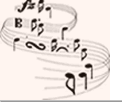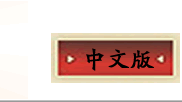




Welcome to Flora Wu Music Studio!
| FAQs |
||
|
These guidelines will help you to have a successful, rewarding experience learning piano. These are practical tips that we have discovered from years of teaching. 1. How young is too young - Starting at right age Adults can start at any time. Their success is based on how willing an adult is to commit to practicing. We teach many beginner students in their 60’s and 70’s. 2. How to make practicing easier time Set the same time every day to practice so it becomes part of a routine or habit. This works particularly well for children. Generally the earlier in the day the practicing can occur, the less reminding is required by parents to get the child to practice. Repetition We use this method quite often when setting practice schedules for beginners. For a young child 20 or 30 minutes seems like an eternity. Instead of setting a time frame, we use repetition. For example, practice this piece 4 times every day, and this scale 5 times a day. Rewards This works very well for both children and adult students. Some adults reward themselves with a cappuccino after a successful week of practicing. Parents can encourage children to practice by granting them occasional rewards for successful practicing. 3. Do’s and Don’ts Do be involved - Parents are, without a doubt, the biggest facilitators of learning. As any teacher well knows, without parents, even our best efforts have very little impact.If you are serious about your child learning music we highly recommend you get involved. The first year is when they need you the most. In almost every case where a child excels at music there is a very supportive parent behind the scenes. Do encourage your child to play and perform - Music is a performing art. Additionally, performance gives your child self-confidence and applause or appreciation reinforces their desire to play. Do listen to music with your child and discuss it - Learning an instrument is not the fun part – playing it is. Listen to great performances so your child can see what the end goal is and understand why he/she is learning music. Do create a learning environment - Don’t have the TV or any other distraction on in the background when your child is practicing. Don’t nag your child to practice, especially in the very beginning - Instead, establish a routine. For example, ask your child to practice for 15 min before dinner every day. Fifteen minutes everyday is more beneficial than an hour once a week. At the beginning, don’t allow your child to decide his own playing schedule. Usually, this results in no practice at all. Over time children will make practice a habit and will want to sit down and play without your guidance. Don’t compare your child’s progress, or level of achievement, with that of other children - All children develop at different rates. Progress should be measured by their own achivements and not by achievements of others. And it does not matter how good you are - there is always somebody whos is better than you. Don’t force your children to play publicly - they may not relish playing to family and friends at all times. Use subtle nudges and be willing to drop the subject if you face significant resistance. 4. We want to try piano lessons. Do we need to buy a piano right away? Benefits of music education, - especially learning piano, are very well known and many people want to start piano lessons. But they don’t want to invest in an acoustic piano right away and are looking at alternatives such as digital pianos. In general, beginners can get by using keyboard for 2-3 months before buying an acoustic piano, but you need to understand a trade-off. Digital Pianos. If you really want to minimize your initial investment we suggest you start with digital pianos. Digital pianos, like every consumer product, vary vastly in price. But you can get the starter piano for around $500. Below is the list of starter pianos that we recommend: 1. Casio Privia PX130 or PX150 2. Yamaha P95 Digital Stage 3. KORG SP250 88-Key Stage Piano You can buy them online ( Amazon, Ebay, etc). Google for the best price. You can also buy them in a store ( Guitar Center and others). Here is the link to Guitar Center website: http://www.guitarcenter.com/Digital-Pianos-Keyboards—MIDI.gc Make sure you have a stand and a bench included. If not, you need to get a bench and a stand separately. Newer versions of these models may already exist. Acoustic piano is a complex mechanical instrument that can sing and must sing. Pianists learn how to do this very early in their careers. They learn how to extract the full palette of sounds by learning how to sit correctly, curve their fingers, apply weight to the keys and shape up sound with a wrist. Playing on an inexpensive keyboard and digital piano is like painting with two colors versus painting with the whole palette if you play a real acoustic piano. That is why ideally you want to have a real acoustic piano right from the very beginning of piano lessons. Now, I assume that you have decided to buy an acoustic piano. What are your options? What type of piano to buy? Buying a piano is like buying a car – you can buy KIA or Lexus, brand new or used one. And like cars, expensive pianos hold their value for a longer time. First of all, if you are buying a piano and not getting one as a gift, don’t buy a spinet. Usually, the higher the piano the better quality sound you get and higher pianos hold their tune better. We suggest the minimum height of 42-44 inches. Buying a new piano. Kawai and Yamaha are the most popular brands in this price range. Contact your local dealer. Buying a used piano from a store. There are some stores in our area that sell used pianos. Buying a used piano from the store has some advantages. Most of the stores offer one year warranty and one free tuning. We can recommend several reputable stores in the area. Buying a used piano from a private party. Craigslist and local newspapers such as Sharon Advocate, Suburban Shopper and others are good sources to look for a piano. Very often you can find a real bargain. And as you bring your mechanic to look at a used car, you need a piano technician to look at the piano. This service usually costs $90-$120. Some piano technicians provide the extended service – they watch craigslist for you and when they see a good deal, they notify you and go with you to evaluate the piano. Many of our students used this service. Usually you can get a piano 30%-60% below a store price and, even with the added cost of needed repairs and tuning, you will still get a bargain. Contact us for contact information of the piano technicians, who provide this service. Free pianos. Sometimes people want just to get rid of their pianos and offer pianos for free or for a nominal price. Again, craigslist and local newspapers are good sources to watch for these offers. Usually once or twice a year somebody calls our Academy and offers a free piano. We maintain a list of people, who are interested in these offers. Please sign-up if you are interested. Piano moving. Piano moving, depending on the distance and a floor a piano needs to be moved from and to, may cost between $250 and $600. The prices vary a lot, so contact us for referrals.
|
About | Contacts | Links | Home
Powered by Flora Wu Music LLC.
Copyright © 2008-2011 Florawumusic.com LLC.All rights reserved